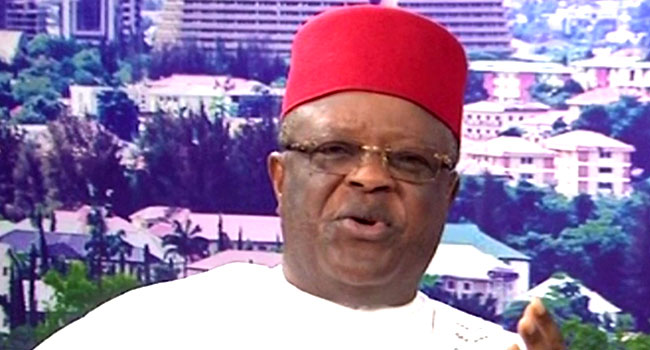The Federal Government has announced a cost-saving review of the Lagos-Calabar Coastal Road project, reducing the number of lanes from 10 to six.
Minister of Works, David Umahi, disclosed this on Friday during a tour of the project, citing the need to address design variations and unforeseen challenges, including the evacuation of up to 10 meters of deep refuse and backfilling affected areas.
Umahi explained that the changes aim to streamline costs while ensuring the highway meets its objectives. “This review is necessary due to variations in the initial design and additional interventions required along the route,” he said.
The Minister also noted efforts to preserve structures along the project corridor, with part of the land being repurposed to create service lanes for local communities.
Adjustments to the initial design include constructing retaining walls in critical sections, such as the Landmark area, to ensure road stability and durability.
The 750-kilometer highway will feature solar-powered streetlights, security cameras, strategic security posts, and tree planting to enhance environmental sustainability and aesthetics.
Umahi assured that 20 kilometers of the project’s first phase would be completed by May 29, 2026, alongside other critical road projects.
The Lagos-Calabar Coastal Highway, spanning nine states, is a 700-kilometer infrastructure initiative aimed at boosting connectivity and economic growth along Nigeria’s coastline.
The project, managed under an Engineering, Procurement, Construction, and Financing (EPC+F) model, entrusts financial responsibility to Hitech Construction Company while the Federal Government provides counterpart funding.
The route begins at Victoria Island in Lagos and runs through Ogun, Ondo, Delta, Edo, and Calabar. Initial plans featured 10 lanes with a rail line integrated into the carriageways, built with innovative 11-inch-thick concrete reinforced with 20mm steel.
Construction commenced in March 2024 with the first phase covering 47.7 kilometers in Lagos State, starting at Ahmadu Bello Way. Phase 1 is scheduled for completion in May 2025, after which tolling will be introduced to recover costs.
The entire project is expected to be completed in eight years, with sections opened in phases as they are finalized.

